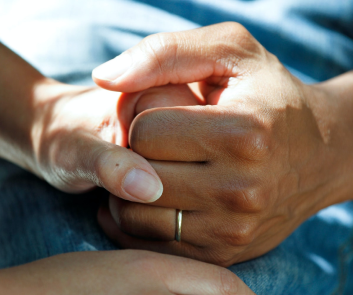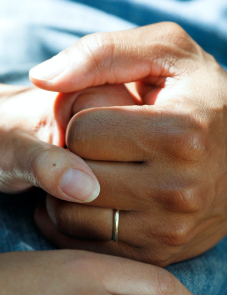In October, the UK Commission on Bereavement launched their summary report. ‘Bereavement is everyone’s business’. I went to the launch and was struck that there is a symbiosis with the Commissions aims, to do more as a society to support all those affected by bereavement.
All our lives will be touched by bereavement at some point, regardless of gender, race, religion, sexuality or age and the Commission is working to improve the level of support that people receive across the UK. The fact is that bereavement is an issue for everyone.
6.9 million people were bereaved in the UK during 2020 And 2021. That is over 10% of the population. Ignoring the humanity of it for a moment, from a business perspective, that is a lot of customers.
The research included interviews with over 1,000 people. The findings include:
- 61% of adult respondents had difficulties with at least one practical or administrative task following bereavement
- 39% of respondents had difficulty sorting out financial affairs
- 10% had difficulties with other practical responsibilities including utility accounts, and either vacating or selling houses.
With that in mind, the commission has published 8 Principles for Change
1: I am supported by my family, my friends and the communities around me
2: I am sensitively supported by my school, college or workplace during my bereavement
3: I am well supported during the death, and feel confident that the person who died received appropriate and compassionate care
4: The things I must do after a death are simple and straightforward
5: I am compassionately and helpfully supported by those whose job brings them into contact with me through my bereavement
6: I have access to an affordable and meaningful funeral
7: I feel secure in my home and have the right financial support
8: I can easily find and access the right emotional bereavement support for my circumstance
The 8 principles will affect us all at some stage. Some of you reading this will have already gone through the pain of losing someone close to you. Life Ledger was born out of the desire to change the experience that one of our founders went through when her mother died. The experience was anything but simple and straightforward, the aspiration for number 4. It was painful and laborious.
Death is probably still the most analogue part of life. It involves paper and people, time and effort, but the Government have a brilliant digital platform, Tell Us Once. You input the details of the person who has died and every part of local and central government that touched that person’s life is told. A central digital point delivering multiple notifications without a loved one having to call each department or fill out the same form multiple times. That is why we built a version for the private sector at Life Ledger. In the 21st Century, it made sense to embrace the digital world and improve everyone’s experience at what is, a very difficult time.
Principle 5 also plays into the work that we all do, compassionately and helpfully supporting those who are bereaved. This is something I know is close to the heart of all those involved in the Collaboration Network.
Who are the commission? A good question and there is a link below giving you more information. It is chaired by The Bishop of London, The Right Reverend and Right Honourable Dame Sarah Mullally DBE, and supported by a steering group guided by Marie Curie, Independent Age, Cruse Bereavement Support, National Bereavement Alliance, Childhood Bereavement Network Centre for Mental Health, University of Bristol, Cardiff University and The University of Warwick. The work was also has input from LEAF, a Lived Experience Advisory Forum consisting of people with personal experience of bereavement.
Supporting the bereaved is difficult. It is emotionally challenging for all involved. Technology company Hammer, commissioned Censuswide to conduct research during May 2022, surveying 1,000 contact centre decision makers and budget influencers in the following industries across companies in Financial Services, Healthcare, Health Insurance and Utilities. They found that
- UK contact centre attrition is at 21%
- 87% of staff are stressed or very stressed
- More likely to be on medication (50%)
- High stress roles – 10% absenteeism
- High stress roles – 44% more likely to leave
These are scary stats for anyone. We have been really heartened by the response of companies who are working with us. We started Life Ledger to give the bereaved the chance to ease their burden. We do, but we have also found that we have eased the burden on the teams receiving the notifications too. We have recently been speaking to companies we work closely with, to build out new features and functionality. The feedback was great.
“It greatly benefits the team as it’s more efficient and much simpler for them to use. There is rarely a need to go back to ask the notifier for more information” – O2
“Feedback from our consumers has been nothing but positive, consumers are really impressed that we are utilising Life Ledger and making it as easy as possible for them” – One Call Insurance
“Life Ledger has drastically reduced handling times, for most cases we can action everything for the bereaved without having to bother them” – Virgin Media
“We get the information we require from Life Ledger notifications and this is very helpful when we then make outgoing calls to the notifier. It makes the call more personal.” – Shell Energy
First published on The Collaboration Network, who have a vision to collectively raise the standards of customer and employee care. Life Ledger is proud to be part of that vision and proud to be working with the UK Commission on Bereavement to help everyone across the United Kingdom when they lose a loved one.
Commissioners – UCB – UK Commission on Bereavement (bereavementcommission.org.uk)



